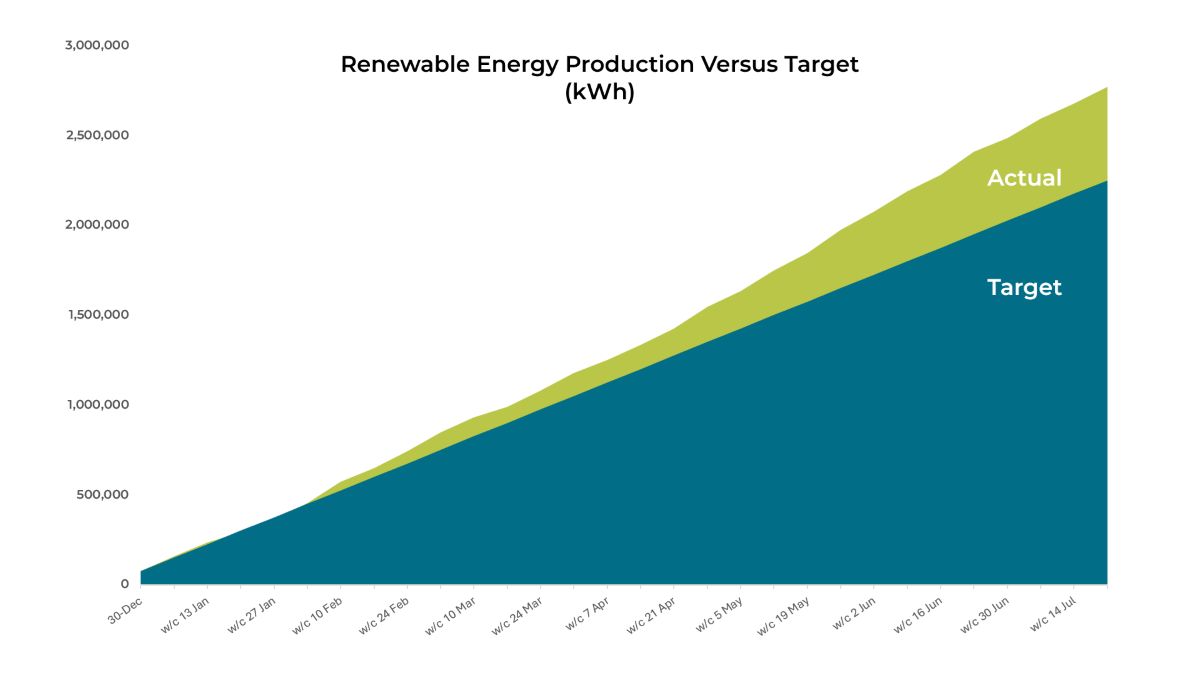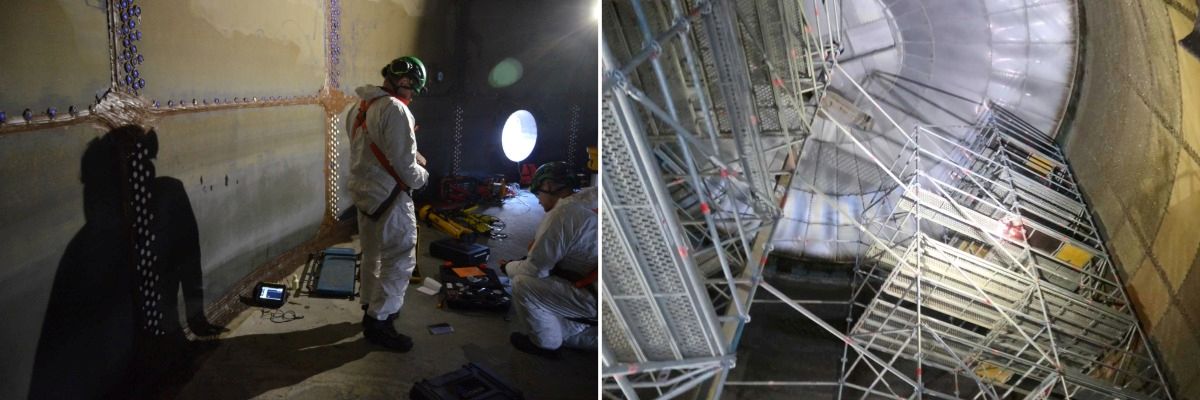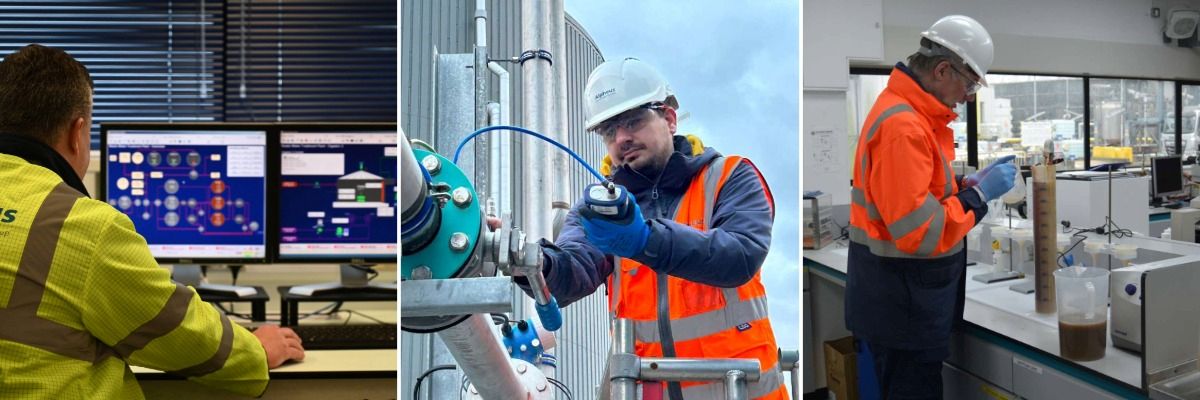

Anaerobic Digestion (AD) is an effective wastewater treatment process that adds value by generating renewable energy, protecting the environment, and enhancing operational sustainability. However, managing an AD plant is complex, requiring technical expertise, careful coordination, and a clear strategy to maximise energy output and safety.
By outsourcing the operation and maintenance of an AD plant to a specialist provider, organisations can generate significant benefits. At our client site, targeted optimisations implemented this year have already delivered a 23% increase in energy production from biogas compared to the planned target. Based on data from 30th December 2024 to 27th July 2025, this has resulted in the generation of 522,248 kWh of additional electrical output (over £140,000 worth) so far this year, despite overall factory production running slightly below plan.

One of the most impactful initiatives was a major project to empty, clean, and inspect all three digester tanks, removing struvite and biomass build-up. This revitalised the digestion process by improving tank capacity and enabling better mixing conditions, which has led to increased biogas output.

In addition to infrastructure improvements, such as the installation of trace heating to pipework and a redesign of the feedline to improve flow to the digester, we have also implemented a more collaborative and transparent management approach with the client production team, which has improved the health and performance of the digester.
Improved visibility into production schedules and working more closely together to balance the influent feed to the AD plant has enabled us to proactively manage digester feeding rates, for example, slowing feed in advance of client production pauses, to maintain stability and avoid sudden process disruptions.

This closer coordination has allowed us to align CHP and flare maintenance with low-production periods, ensuring critical maintenance can be performed without compromising kW generation during peak periods. Previously, major overhauls had been planned into a two-week shutdown. However, extra planning and splitting larger projects to fit in with production have enabled us to maintain the performance of the CHPs with minimal disruption.
In addition, we identified an opportunity to remove excess fat from the pre-digester, which has led to multiple benefits. Not only does this create extra storage capacity and reduce fat build-up in pipework, but it also allows us to reprocess this material into additional feedstock. This can then be used to supplement feed during times of low production. This strategy will be valuable during the planned factory shutdown in September, enabling us to maintain digester feed and sustain energy production.
These improvements are a strong example of how technical expertise, proactive operations, and strategic collaboration can deliver measurable gains in sustainability, cost savings, and plant performance.